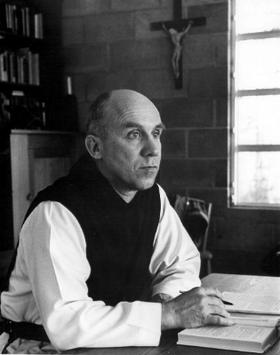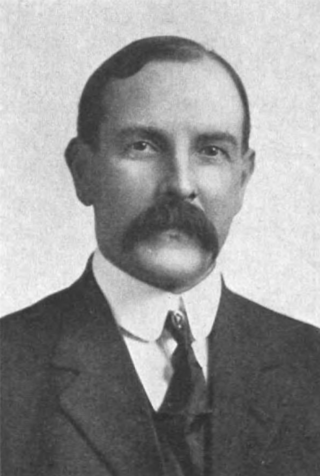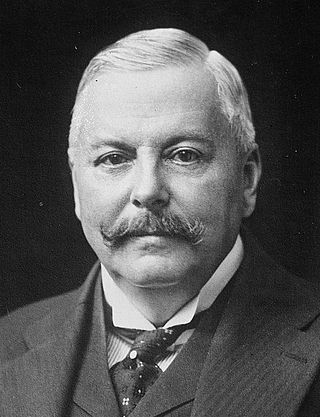Related Research Articles

Hubert Howe Bancroft was an American historian and ethnologist who wrote, published and collected works concerning the western United States, Texas, California, Alaska, Mexico, Central America and British Columbia.

Thomas Merton was an American Trappist monk, writer, theologian, mystic, poet, social activist and scholar of comparative religion. On May 26, 1949, he was ordained to the Catholic priesthood and given the name "Father Louis". He was a member of the Abbey of Our Lady of Gethsemani, near Bardstown, Kentucky, living there from 1941 to his death.
Percy Gardner, was an English classical archaeologist and numismatist. He was Disney Professor of Archaeology at the University of Cambridge from 1879 to 1887. He was Lincoln Professor of Classical Archaeology and Art at the University of Oxford from 1887 to 1925.

Sir Henry Maximilian Beerbohm was an English essayist, parodist and caricaturist under the signature Max. He first became known in the 1890s as a dandy and a humorist. He was the drama critic for the Saturday Review from 1898 until 1910, when he relocated to Rapallo, Italy. In his later years he was popular for his occasional radio broadcasts. Among his best-known works is his only novel, Zuleika Dobson, published in 1911. His caricatures, drawn usually in pen or pencil with muted watercolour tinting, are in many public collections.

Sir Arthur Thomas Quiller-Couch was a British writer who published using the pseudonym Q. Although a prolific novelist, he is remembered mainly for the monumental publication The Oxford Book of English Verse 1250–1900 and for his literary criticism. He influenced many who never met him, including American writer Helene Hanff, author of 84, Charing Cross Road and its sequel, Q's Legacy. His Oxford Book of English Verse was a favourite of John Mortimer's fictional character Horace Rumpole.

Arthur Edwin Kennelly was an American electrical engineer.

Chauncey Mitchell Depew was an American attorney, businessman, and Republican politician. He is best remembered for his two terms as United States Senator from New York and for his work for Cornelius Vanderbilt, as an attorney and as president of the New York Central Railroad System.

Arthur Benjamin Reeve was an American mystery writer. He is known best for creating the series character Professor Craig Kennedy, sometimes called "The American Sherlock Holmes", and Kennedy's Dr. Watson-like sidekick Walter Jameson, a newspaper reporter, for 18 detective novels. Reeve is famous mostly for the 82 Craig Kennedy stories, published in Cosmopolitan magazine between 1910 and 1918. These were collected in book form; with the third collection, the short stories were published grouped together as episodic novels. The 12-volume publication Craig Kennedy Stories was released during 1918; it reissued Reeve's books-to-date as a matched set.
Roger Gilbert Lancelyn Green was a British biographer and children's writer. He was an Oxford academic who formed part of the Inklings literary discussion group along with C. S. Lewis and J. R. R. Tolkien. He had a positive influence on his friend, C.S. Lewis, by encouraging him to publish The Lion, the Witch and the Wardrobe.
Sir John Bretland Farmer FRS FRSE was a British botanist. He believed that chromomeres not chromosomes were the unit of heredity. Farmer and J. E. S. Moore introduced the term meiosis in 1905.

Sir Ernest Barker was an English political scientist who served as Principal of King's College London from 1920 to 1927.
Francis Arthur Bather FRS was a British palaeontologist, geologist and malacologist. His mother, Lucy Elizabeth Blomfield, was a daughter of Charles Blomfield, Bishop of London. His father, Arthur Henry Bather, who was deaf, was a clerk in the office of the Accountant-General for the Navy.

Sir Arthur Everett Shipley GBE FRS was an English zoologist and Vice-Chancellor of the University of Cambridge.

Edgar Fahs Smith was an American scientist who is best known today for his interests in the history of chemistry. He served as provost of the University of Pennsylvania from 1911 to 1920, was deeply involved in the American Chemical Society and other organizations, and was awarded the Priestley Medal in 1926.
Geoffrey Reginald Gilchrist Mure was a British idealist philosopher and Oxford academic, who specialised in the works of the German philosopher, Hegel.
Walter Alison Phillips was an English historian, a specialist in the history of Europe in the 19th century. From 1914 to 1939 he was the first holder of the Lecky chair of History in Trinity College, Dublin. Most of his writing is in the name of W. Alison Phillips, and he was sometimes referred to as Alison Phillips.

Percy Stafford Allen, FBA was a British classical scholar, best known for his writings on Desiderius Erasmus.

John Merton Aldrich was an American entomologist. Aldrich was the Associate Curator of Insects at the United States National Museum. He is considered one of the most prolific entomologists in the study of flies.
Robert Bamford was an English engineer, who with Lionel Martin (1878–1945), founded a company in January 1913 that became Aston Martin. Before his career in the car industry he was active as a racing cyclist.
References
- Levi, Herbert W. (1975): In Memoriam: Arthur M. Chickering, 1887–1974. Transactions of the American Microscopical Society94(2): 268–272. (with list of publications) – first page